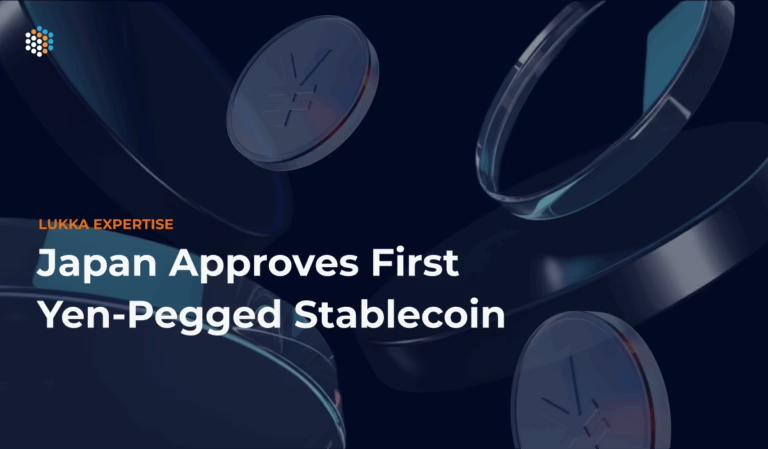Author: Lisa Zarlenga and John Cobb, Steptoe
This article is presented for general information only and may not be relied upon as legal or tax advice. Interested persons should seek advice from legal counsel in applying the considerations discussed to their own situations.
Like-Kind Exchanges, In General
When a taxpayer exchanges appreciated property for other property, the taxpayer generally recognizes gain equal to the fair market value of the property received less the taxpayer’s adjusted basis in the property disposed. Section 1031 of the Internal Revenue Code has long provided an important exception to this rule in the case of certain like-kind exchanges. When section 1031 applies, a taxpayer does not recognize gain on the exchange of appreciated property for like-kind property. Instead, the taxpayer takes a carryover basis in the property received, which means that the taxpayer’s gain effectively is deferred until the taxpayer disposes of the property received in a taxable transaction.
Tax-Deferred Like-Kind Exchanges of Virtual Currency No Longer Available After Tax Reform
The Tax Cuts and Jobs Act, enacted at the end of 2017, limited like-kind exchanges under section 1031 to exchanges of certain real property. As a result, exchanges of virtual currency occurring after 2017 cannot qualify for tax-deferred treatment under section 1031. Various bills have been proposed that would reinstitute the possibility of tax-deferred like-kind exchanges for virtual currency,1 but none of these bills have made it out of committee.
Exchanges Occurring Before Tax Reform
Prior to 2018, section 1031 generally permitted gain from an exchange of property to be deferred if: (i) the property was held for productive use in a trade or business or for investment; (ii) the property was exchanged solely for property of like kind; and (iii) the like-kind property received was to be held either for productive use in a trade or business or for investment. Stock in trade or other property held primarily for sale, stocks, bonds, notes, other securities or evidences of indebtedness, and interests in a partnership did not qualify for tax-deferred like-kind treatment under section 1031. As a result, tax-deferred like-kind treatment generally would not have been available for virtual currency dealers who hold virtual currency for sale to customers (as opposed to virtual currency traders who buy and sell virtual currency only for their own account). Similarly, virtual currency that properly is treated as equity or debt for tax purposes would not qualify for tax-deferred like-kind treatment.2
There are no IRS rulings or other authorities that directly address when or whether two virtual currencies might be treated as like-kind property. Treasury regulations3 provide that the words “like kind” refer to the nature or character of property and not to its grade or quality. Furthermore, virtual currencies are intangible personal property, and the regulations provide that whether intangible personal property is of like kind to other intangible personal property generally depends on the nature or character of the rights involved (e.g., a patent or a copyright) and also on the nature or character of the underlying property to which the intangible personal property relates.
The IRS has also issued rulings relating to like-kind exchanges that might provide relevant analogies to the virtual currency context. For example, the IRS has ruled that gold bullion and silver bullion are not of like kind because gold primarily derives its value from use as an investment or store of value while silver primarily derives its value from its use as an industrial commodity.4 Similarly, the IRS ruled that collector-type numismatic gold coins that primarily derive their value from factors like rarity and aesthetics are not of like kind with bullion-type coins that primarily derive their value from their metal content.5 In contrast, the IRS has ruled that gold bullion is of like kind with bullion-type gold coins that have no numismatic value,6 and that bullion-type gold coins minted by one country are of like kind with bullion-type gold coins minted by another country, as long as the coins are no longer circulating as a medium of exchange within their respective countries.7
In addition, the IRS has issued guidance concluding that intangible contract rights are of like kind with other intangible contract rights. The IRS ruled that standard player contracts with respect to one player owned or controlled by major league baseball or football clubs are of like kind with standard player contracts with respect to another player.8 In addition, the IRS concluded that FAA airplane takeoff and/or landing rights for commercial air traffic are of like kind whether they are for different times, at different airports, or for takeoff only or landing only.9 The IRS also concluded that FCC radio licenses are of like kind with FCC television licenses because the property underlying an FCC license was the assigned broadcast frequency of the electromagnetic spectrum and any differences in the assigned frequencies (such as greater bandwidth assigned for television licenses) were differences in grade or quality only.10
Although these regulations and rulings provide very limited guidance on what factors to consider in determining whether one type of virtual currency is like kind with another type of virtual currency, they do suggest that it is appropriate to adopt a case-by-case approach that looks to the degree of similarity between the two virtual currencies. For example, an exchange of bitcoin for bitcoin cash should be more likely to qualify as like-kind than an exchange of bitcoin for tether. In an informal statement in 2019, an official from the IRS chief counsel’s office stated that the IRS’s position was that, for years prior to 2018, “we would not say necessarily that virtual currency is automatically not eligible for [section] 1031 treatment,” further suggesting that a case-by-case approach looking to the taxpayer’s facts and circumstances is appropriate.
Taxpayers who wished to take a position on their pre-2018 tax returns that an exchange of virtual currency qualified as a tax-deferred like-kind exchange were required to follow special reporting rules. In particular, like-kind exchanges needed to be reported on Form 8824. In addition, well-advised taxpayers may have disclosed their position on Form 8275 to help mitigate the risk of any penalties that may be assessed if the IRS disagrees with the position. The window is closing on amending 2016 and 2017 returns. Taxpayers wishing to report a pre-2018 exchange of virtual currency as like-kind should seek the advice of counsel.
******
1 See, e.g., Token Taxonomy Act of 2019, H.R. 2144 (116th Cong.); Virtual Value Tax Fix Act of 2019, H.R. 3963 (116th Cong.); Bill to amend the Internal Revenue Code of 1986 to allow exclusion of gain or loss on like-kind exchanges of virtual currency, H.R. 7361 (115th Cong.).
2 Although payment tokens, such as bitcoin [I think this is also right for plain vanilla ether but don’t want people to think we are referring to ERC-20 tokens, i.e. smart contracts that use the Ethereum blockchain for token implementation], would not likely be characterized as equity or debt for tax purposes, certain customized tokens could have characteristics of equity or debt. For example, DAO tokens likely were properly characterized as equity for US income tax purposes. [To my mind DAO tokens were clearly equity. Also there is the added benefit that it is long enough ago and died quickly enough that we shouldn’t be stepping on anyone’s toes by saying so.]
3 The regulations have not been amended to reflect the Tax Cuts and Jobs Act.
4 Rev. Rul. 82-166, 1982-2 C.B. 190.
5 Rev. Rul. 79-143, 1979-1 C.B. 264.
6 Rev. Rul. 82-96, 1982-1 C.B. 113.
7 Rev. Rul. 76-214, 1976-1 C.B. 218.
8 Rev. Rul. 67-380, 1967-2 C.B. 291; Rev. Rul. 71-137, 1971-1 C.B. 104.
9 General Counsel Memo 39606 (Feb. 27, 1987).
10 Technical Advice Memorandum 200035005 (Sept. 5, 2000).



